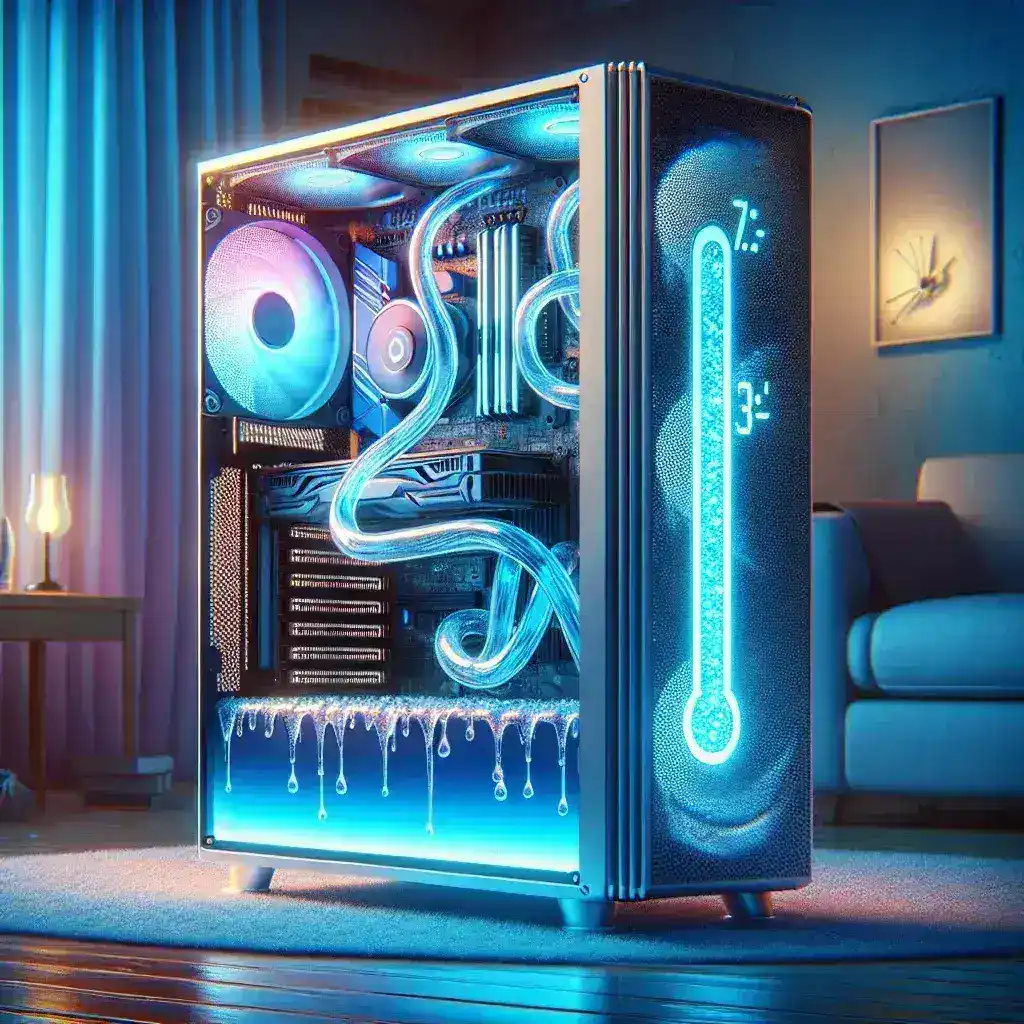For gamers, achieving optimal performance from their PCs is paramount. One advanced method to ensure peak performance involves using liquid cooling systems. As opposed to traditional air cooling, liquid cooling offers numerous benefits that can significantly enhance your gaming experience.
What is Liquid Cooling?
Liquid cooling, also known as water cooling, utilizes a liquid solution to dissipate the heat generated from PC components. This method is more efficient compared to traditional air cooling. Typically, components such as the CPU and GPU, which generate the most heat, benefit the most from liquid cooling.
Components of a Liquid Cooling System
A liquid cooling system is composed of several critical components:
- Pump: Circulates the cooling liquid through the system.
- Radiator: Helps in cooling the liquid by dissipating heat into the surrounding air.
- Tubing: Connects the components, allowing the liquid to flow throughout the system.
- Water Block: Directly contacts the heat sources (like CPU and GPU), extracting heat from them.
- Reservoir: Stores extra liquid and helps in filling or draining the system.
Benefits of Liquid Cooling for Gaming PCs
There are several notable advantages to using liquid cooling in gaming PCs:
1. Enhanced Cooling Efficiency
Liquid cooling systems are known for their superior cooling capabilities. They can dissipate more heat compared to air coolers, ensuring that components run at lower temperatures. This is particularly beneficial during long gaming sessions where hardware can get extremely hot.
2. Reduced Noise Levels
Air coolers rely on fans to move air across heat sinks. More powerful systems often mean more and faster fans, which can generate considerable noise. Liquid cooling systems, on the other hand, use a quiet pump and typically fewer fans, making for a much quieter gaming experience.
3. Overclocking Potential
One of the most appealing aspects of liquid cooling is its support for safe overclocking. By keeping temperatures in check, liquid cooling allows gamers to push their CPU and GPU beyond stock speeds without risking overheating.
4. Aesthetic Appeal
Modern liquid cooling systems often feature customizable lighting and sleek designs, which can add a visually appealing element to your gaming rig. They allow for a degree of personalization that air coolers cannot match.
Performance Comparison: Liquid Cooling vs. Air Cooling
Let’s take a look at how liquid cooling stacks up against traditional air cooling in terms of key metrics:
| Metric | Liquid Cooling | Air Cooling |
|---|---|---|
| Cooling Efficiency | High | Moderate |
| Noise Level | Low | High |
| Overclocking Capability | Excellent | Limited |
| Installation Complexity | High | Low |
| Aesthetic Appeal | High | Moderate |
Considerations Before Installing a Liquid Cooling System
While the benefits are clear, it’s important to consider the following before installing a liquid cooling system:
1. Installation Complexity
Installing a liquid cooling system can be more complex and time-consuming than setting up an air cooling solution. It requires careful planning and understanding of your PC’s layout.
2. Maintenance Requirements
Liquid cooling systems require regular maintenance to ensure they operate efficiently. This includes checking for leaks, replacing the liquid coolant, and cleaning the radiator and other components.
3. Cost
Generally, liquid cooling systems are more expensive than air coolers. However, the benefits in performance and aesthetics can justify the investment for serious gamers.
Conclusion
In summary, liquid cooling is a powerful method to enhance the performance and longevity of gaming PCs. It offers superior cooling, reduced noise levels, and the potential for significant overclocking, all while providing an aesthetically pleasing design. Despite the higher upfront cost and maintenance requirements, the benefits can make it a worthwhile investment for any dedicated gamer.




